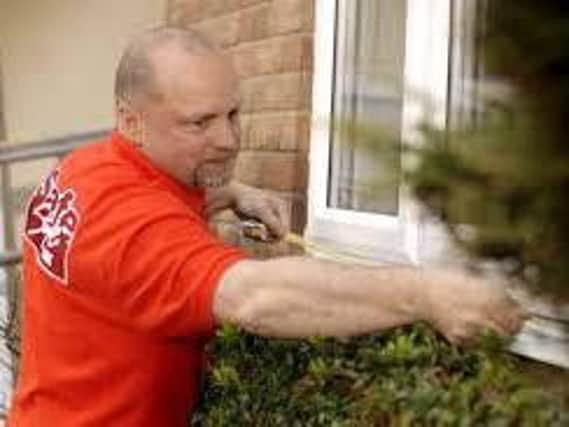Weak consumer confidence hits Safestyle


The Bradford-based firm said a number of factors have hit consumer confidence and it is introducing a range of initiatives to reduce its cost base.It hopes to avoid any compulsory redundancies and said some clerical roles could go through natural wastage as people leave the business.The group's chief executive Steve Birmingham said: "It's a combination of a lot of macro-economic factors affecting consumer confidence."Brexit is a factor, inflation is a factor. People are concentrating on essential purchases. Our products can be temporarily postponed. This feels like uncertainty."The group expects the market to remain weak in 2017 and has no great hope of an improvement in 2018."We are preparing ourselves for more of the same," said Mr Birmingham."We are reducing our cost base. We are hopeful that the market will increase in 2018, but there is no guarantee of that. We will assume the market will be as bad as it is."Safestyle said'‹ market statistics from FENSA show the rate of market'‹ '‹decline in '‹the first half of 2017 accelerated from a '‹first quarter reduction of 2.4'‹ per cent '‹to '‹a '‹17.2'‹ per cent slide in the second quarter.I'‹t'‹ believe'‹s'‹ this'‹ '‹significantly steeper rate of decline has continued into the first two months of '‹the third quarter.Despite the tough market, Safestyle has coped well and has increased its market share from 10.2 per cent at the end of 2016 to 11.2 per cent by June 30.'‹Asked whether other firms are suffering more than Safestyle, Mr Birmingham said: "I suspect that is the case. The larger businesses should have the ability to perform better."60 per cent of the market is one-man bands. The smaller guys could decide to leave the business."Cost cutting measures will include introducing digital technology to remove costs and create a slicker operation.The group has managed to put up prices by 6 per cent."We are still very competitive even though we've put up prices," said Mr Birmingham."The price increases are probably lower than some of our competitors. The whole industry has had price inflation."The group said it has completed its new factory extension at Wombwell, South Yorkshire, on time and on budget. Safestyle has invested £7.3m in a 60,000 sq ft extension to the factory, which is now on one site rather than two.Asked what the Government could do to help the business, Mr Birmingham said: "It's all about consumer confidence. Anything that helps consumer confidence is good."We've got turbulent times ahead and regardless of what happens with Brexit, we will take market share. We will do whatever we can to reduce the cost base."The group also announced a share buy-back of up to £2.5m."We believe the share price reduction in recent times has been overdone. The buy-back is a cost effective way of returning capital," said Mr Birmingham.Safestyle reported a 15 per cent decline in underlying pre-tax profits to £9m in the six month to June 30. Revenue rose 1.4 per cent to £82.5m.A number of big ticket retailers such as Doncaster-based DFS Furniture have suffered from falling expenditure as people can postpone buying expensive items such as a new sofa or getting their windows double glazed.Analyst Matthew McEachran at N+1 Singer said: "The trading picture has not deteriorated any further since the warning two weeks ago and the business is actively responding in terms of cost savings, efficiency initiatives and also replacing the sales director (which the CEO takes charge of on an interim basis). "We don’t foresee any further forecast changes in the near term and believe the recent cuts are adequate enough. "With the share price having met our target price, and given the announcement of a £2.5m share buyback which will absorb any residual selling pressure and be slightly earnings enhancing, we believe further downside risk to the shares is limited in the near term. We therefore move back to 'hold' from 'sell'."